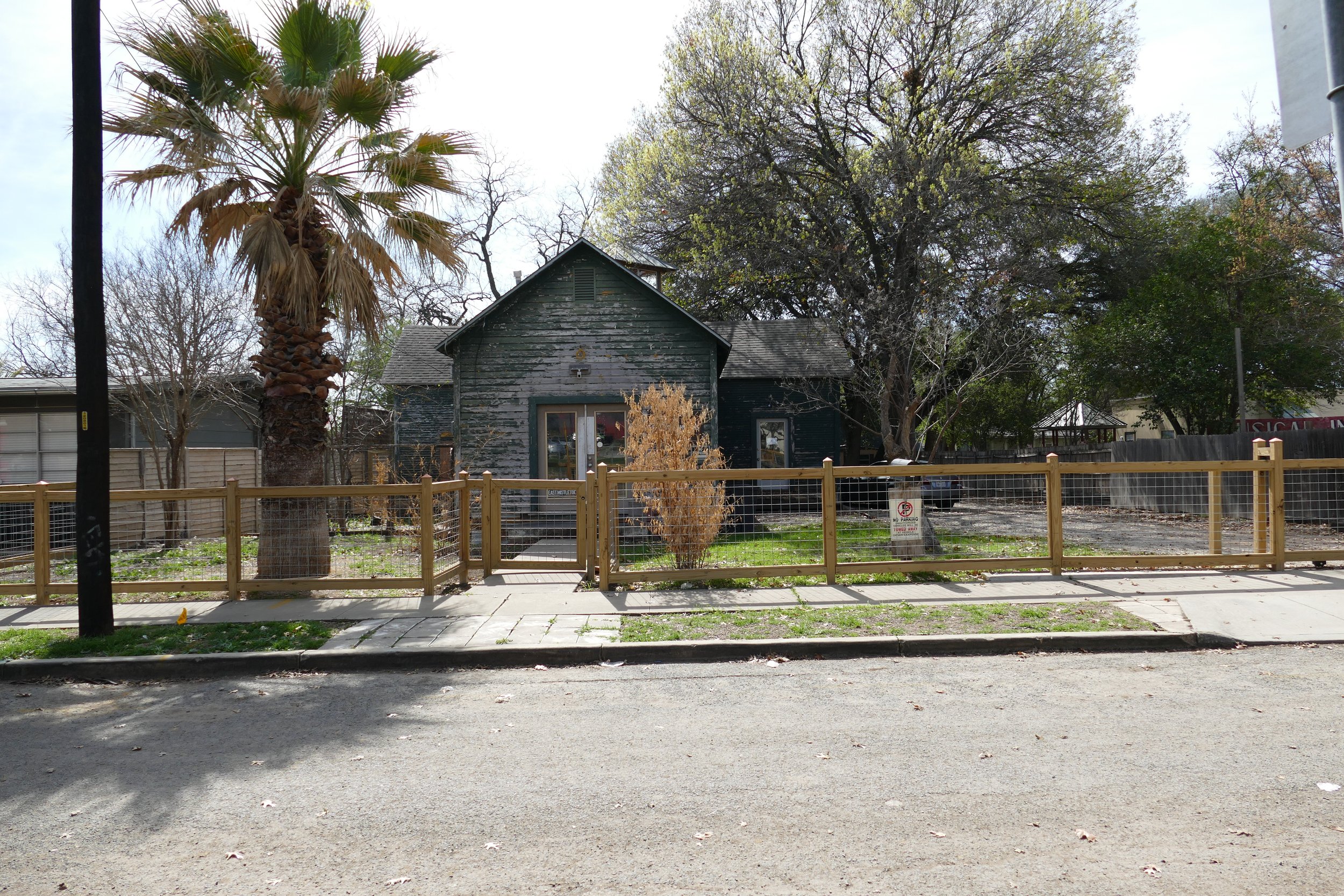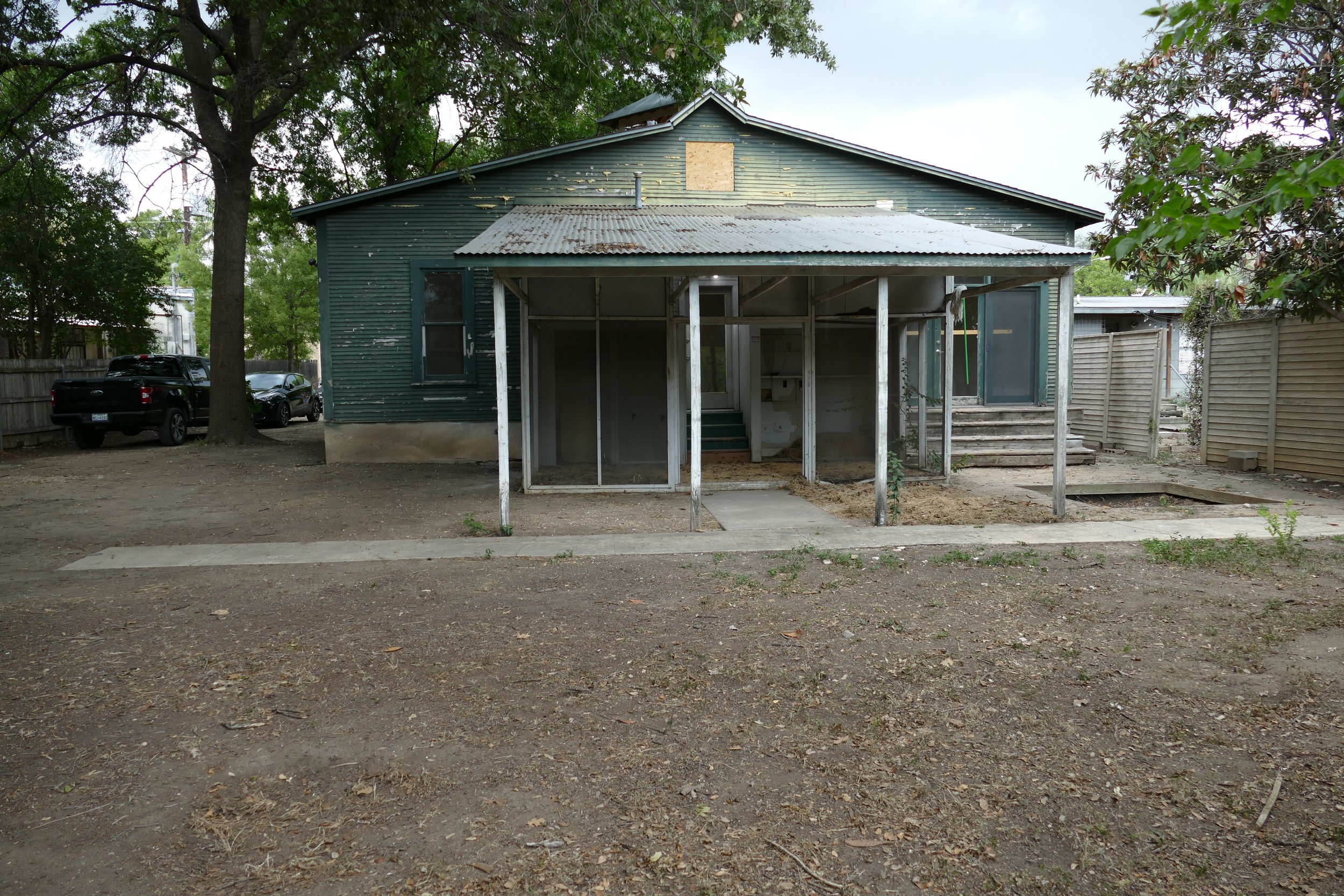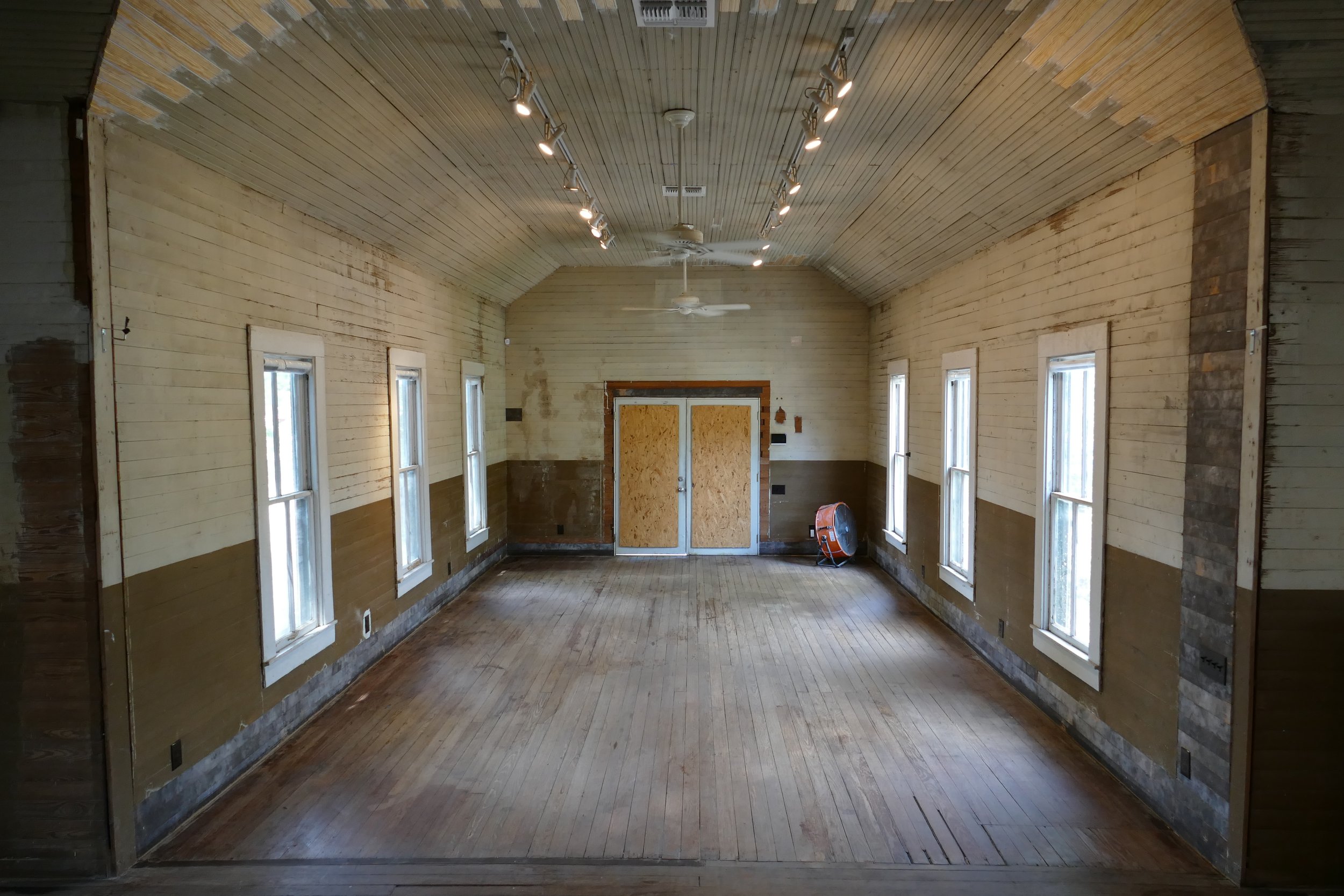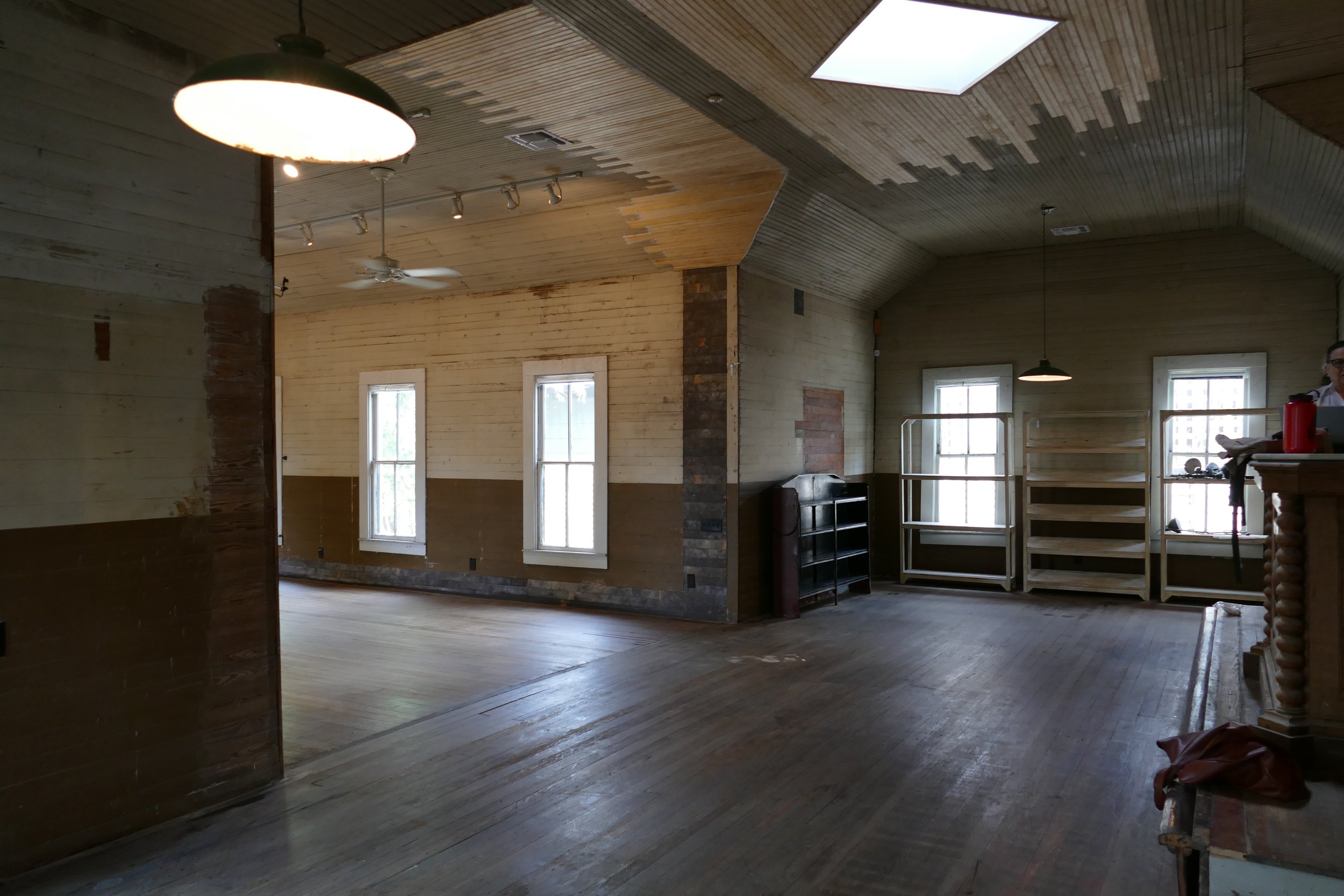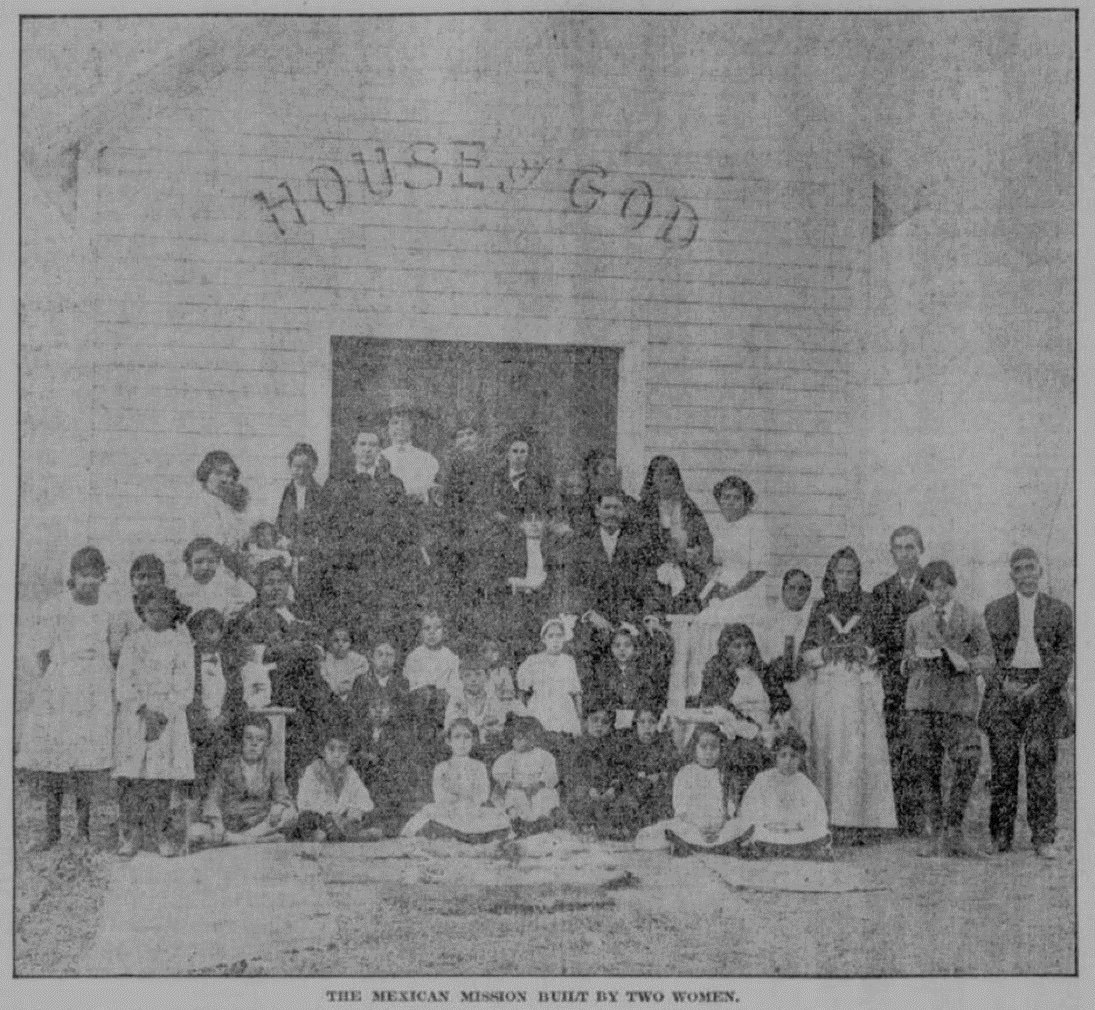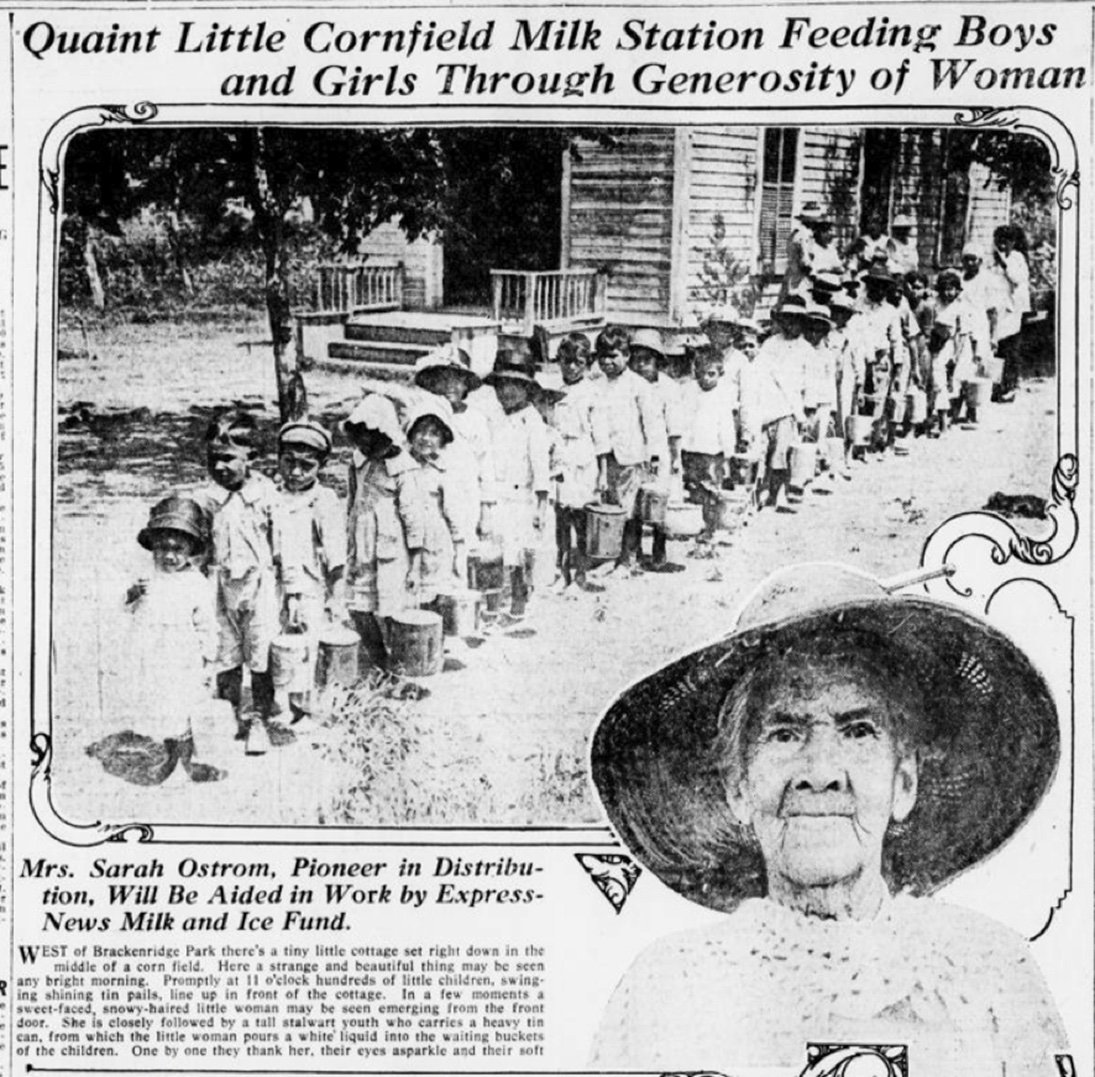Casa de Dios (Ostrom Mission)
San Antonio, Texas
Casa de Dios (also known as the Ostrom Mission) in San Antonio, Texas, was founded in 1909 by Sarah Ostrom, a Progressive-Era social reformer, teacher, philanthropist, and missionary. Before and during the Mexican Revolution, a large wave of Mexican immigrants settled near the Ostrom homestead adjacent to the rock quarry and “poor house.” In response to the population influx and as people of faith, the Ostroms first began holding religious services for the nearby community in their backyard during the summer of 1909. Sarah and her daughter Frances were experienced teachers and had taught Sunday school at various denominations throughout the community. As winter approached, they wanted to continue providing services during the cold winter months. With money saved to repair their home after a fire and credit secured from the West End Lumber Company, they built Casa de Dios in late 1909 as a small church and mission on property they owned. Before the creation of government assistance agencies and programs, Sarah and Frances provided food, clothing, education, employment, and medical services to low-income Mexican families at Casa de Dios who were unable to receive assistance elsewhere.
During the Progressive era, women carved out more roles in the public sphere through their work with philanthropic, social, religious, and political organizations. While these women-led organizations appeared in the U.S., Texas, and San Antonio at that time, Casa de Dios, located in a rural area outside the city limits, appears to be the only social welfare organization founded independently by a woman without affiliation to a larger organization. It also appears to be the only social welfare organization that catered to the Mexican population in northern San Antonio, as most similar organizations were concentrated in western San Antonio. After Sarah Ostrom died in 1925, her daughter Frances inherited the family’s landholdings in northern San Antonio. Frances subdivided the surrounding area into the Mistletoe Addition, but maintained Casa de Dios, which she continued to operate until the sale of the property to the Nazarene Church. The property is nominated to the National Register of Historic Places under Criterion B in the area of Social History at the local level of significance. The Ostrom homestead was demolished in 1926, and Casa de Dios remains the only extant property associated with Sarah representing her productive life.



